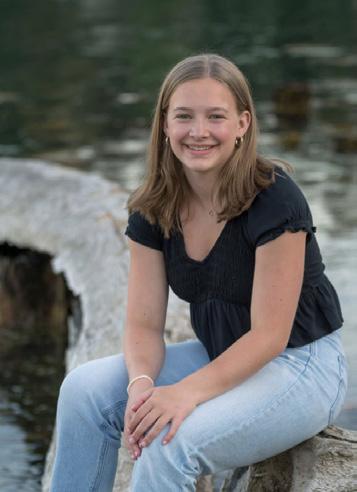
2 minute read
FEEL THE BURN shorts
discuss the material with others, who brought their own diverse outlooks and experiences to the table. Students are eager to see if the book club will continue now that there is a new English teacher at the school.
One of the students who participated in the assignment, but who wishes to stay anonymous, had only positive thoughts on the project. “The most notable thing from this book club was simply the ability to analyze a book through so many different perspectives,” the student said. Encouraging students to view the world through other people’s lenses directly lines up with Hyla’s curriculum, the student added, “which works to go against the grain, and analyze things from new perspectives.”
Advertisement
Kathy Ellison, Bainbridge High School librarian, expressed why she thinks books are banned in the first place. “The initial motivation is a desire to protect kids, but it turns into a need to control what all kids can access,” she said. The only books that should be banned? “Books that promote hate,” she added.
BY AVERY GRAY
Banning books is spreading like wildfire across America. On Bainbridge Island, educators at Hyla upper schoool are taking a different approach. They are encouraging their students to read those same forbidden books and to examine the critical ideas commonly found in the banned texts.
Banning books in America dates back to at least 1960, when a teacher in Tulsa, Oklahoma, was fired for assigning her students the novel “The Catcher in the Rye” by J.D. Salinger. The book was flagged by district employees for offensive language and explicit sexual content and was deemed unsuited for the age group. Though it was the first, it was far from the last time a book would be challenged. The nonprofit newspaper “Education Week” lists other topics that often lead to books being banned, including LGBTQIA+, sex and sexuality, critical race theory and gender.
While America is dealing with a rise in censorship, Hyla is working to open its students’ minds to a world of new perspectives and ideas. The Banned Book Club idea began as an English assignment for 10th and 11th grade students. Their job was to pick a novel that had recently been banned or challenged, then discuss it in small groups. Students had a wide range of choices, including “The Things They Carried” by Tim O’Brien, “Their Eyes Were Watching God” by Zora Neale Hurston, “Slaughterhouse-Five” by Kurt Vonnegut, and “The Handmaid’s Tale” by Margaret Atwood. The assignment allowed students to read about and
The Hyla student also had thoughts on what motivates book banning. “It comes from a place of fear. Fear of differences and of the unknown, fear that should not be projected onto young people in schools. We as students deserve access to a diverse collection of literature that will challenge our beliefs and our intellects.”
As censorship, in the form of book banning, remains a troubling issue in many parts of America, on Bainbridge our schools and educators are working to give students a rich and diverse view of the world and the many experiences that it encompasses.
Avery Gray is currently a senior at Bainbridge High School. Outside of school, she is a competitive gymnast both for the high school and club teams, as well as a gymnastics coach. After high school, her main goal is to attend college and major in political science and international relations.











